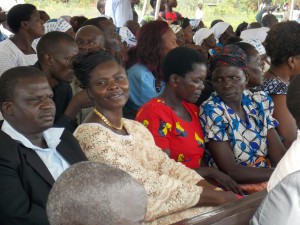In the United Kingdom elections held in May last year, 182 women were elected to parliament, including a 20-year-old student from Scotland and three women of Nigerian descent.
This was the highest number of women elected in the country’s history, up from 148 in 2010.
Rwanda takes the honours for having the most female-friendly national legislature in the world, with 56.3 per cent of its 80 members being women.
The scenarios in these countries does not mean that their women are better qualified than their Kenyan counterparts.
However, it shows that the laws were drafted, and implemented, to ensure that women were encouraged and facilitated to contend for leadership.
Long before women became a majority in the Rwandan Parliament, the post-genocide constitution had already guaranteed them 30 per cent representation.
It is disheartening to note that despite the fact that women make up roughly half of the Kenyan population, there is no single woman governor or elected senator.
Even among the 47 county bosses, only eight deemed it fit to have women running mates.
The eight women deputy governors are there through affirmative action.
This is against the fact that those who urgently needed the decentralisation of resources, hence the biggest beneficiaries of devolution, were rural women who had to walk for many kilometres in search of water and health facilities.
MAKE ARTICLE 81(B) A REALITY
The now defunct discussion of whether to implement Article 81(b) of the Constitution or not should not feature anywhere near the options.
The chairman of the Parliamentary Committee on Justice and Legal Affairs, Mr Samuel Chepkong’a, was completely out of order in his 2015 proposal to indefinitely postpone the gender parity rule through an amendment Bill.
Instead of trying to subvert the course of the rights of women in this country by amending or delaying the implementation of the law, we should be discussing how to make this law a reality.
Female legislators across the political divide were perfectly justified to demand an immediate withdrawal of this retrogressive Bill and the implementation of Article 81 (b) by the August 2015 deadline.
The National Assembly Speaker’s suggestion that the post of woman representative and the nominated MPs be abolished and in their place be created 100 special seats was not only outrageous but also an infringement on the rights of people with special needs.
You cannot trample on the rights of one group while trying to give justice to others.
We should empower women by consolidating legal structures that create an enabling environment where they can compete fairly for elective positions with their male opponents.
Those that have been saying that the gender parity rule is impossible to implement or should be delayed are hell-bent on trampling on the rights of women in this country.
The county assemblies have shown the National Assembly the way by ensuring that they adhere to this critical constitutional requirement.
In my opinion, the reason the National Assembly found it problematic to implement this critical piece of legislation is because for the past three years we have been behaving as if Article 81 (b) does not exist.
Despite the fact that the government knew very well that there was a time frame to implement this critical clause, no one bothered to start the discussion or laying down the structures on how the gender parity rule should be achieved.
Lack of planning on the part of the State and the National Assembly for a deadline they knew was fast approaching should not be used to punish Kenyan women, who voted for a constitution they believed would improve their lot.
The writer is an entrepreneur in Migori county. anneanyanga@gmail.com.
The story appeared in today’s Daily Nation read it here:


